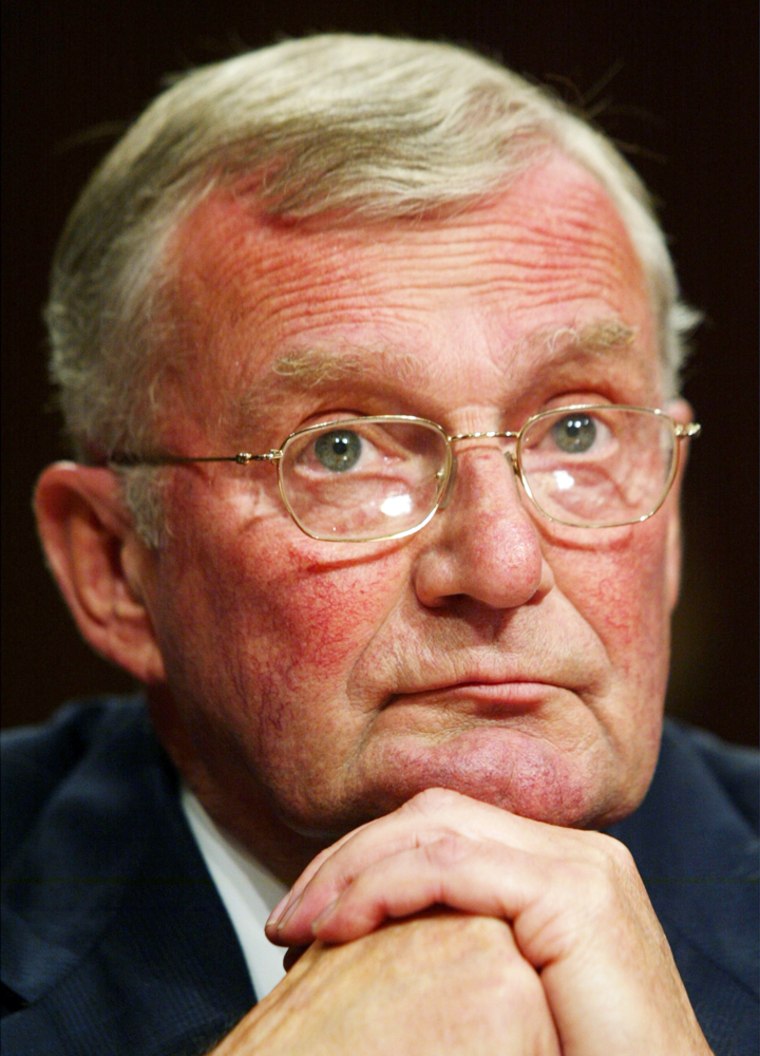The Army general who was Joint Chiefs chairman when the Pentagon adopted its “don’t ask, don’t tell” policy on gays says he no longer opposes allowing them to serve openly.
John Shalikashvili, who retired in 1997 after four years as the nation’s top military officer, had argued that allowing homosexuals to serve openly would hurt troop morale and recruitment and undermine the cohesion of combat units. He said he has changed his mind after meeting with gay servicemen.
“These conversations showed me just how much the military has changed, and that gays and lesbians can be accepted by their peers,” Shalikashvili wrote in an opinion piece in Tuesday’s New York Times.
His view could carry weight at a time when advocates of lifting the restriction on gay service members argue that the military — under the strain of fighting two wars — can ill-afford to exclude any qualified volunteers. It’s not clear, however, how much enthusiasm Congress will have for pressing the matter.
The current policy, based on legislation passed by Congress in 1993 after a firestorm of debate, states that gays and lesbians may serve in the military only if they keep their sexual orientation private. Commanders may not ask, and gay service members may not tell. Over the years thousands have been dismissed under this policy.
Shalikashvili is not the first former senior military officer to change his mind about gays in the military, though he is perhaps the most prominent. John Hutson, a retired two-star Navy admiral who was the Navy’s top lawyer, said Tuesday he thinks the nation has undergone so much cultural change over the past decade that allowing gays to serve openly in the military would enhance rather than weaken the cohesion of fighting units.
“I think it will absolutely happen,” Hutson said in a telephone interview, but probably not during the Bush administration.
Big debate anticipated
Shalikashvili said he expects fierce debate over gays in the military this year as Congress considers President Bush’s call for expanding the size of the Army, which is stretched thin by wars in Iraq and Afghanistan.
Shalikashvili cautioned, however, against pushing for repeal of the ban early in the new Congress, which he said should be focused on urgent priorities like developing a better strategy in Iraq and healing divisions over the war.
“Fighting early in this Congress to lift the ban on openly gay service members is not likely to add to that healing and it risks alienating people whose support is needed to get this country on the right track,” he wrote in the Times article.
In explaining his shift on the issue, Shalikashvili also cited a new Zogby poll, commissioned by the Michael D. Palm Center at the University of California at Santa Barbara, of 545 U.S. troops who served in Iraq and Afghanistan. It reported that three quarters said they were comfortable around gay men and lesbians.
The poll, published in December, also said 37 percent opposed allowing gays to serve openly, while 26 percent said they should be allowed and 37 percent were unsure or neutral. Of those who said they were certain that a member of their unit was gay or lesbian, two-thirds did not believe it hurt morale.
C. Dixon Osburn, executive director of Servicemembers Legal Defense Network, an advocate for gay rights, called Shalikashvili’s article “enormously significant.” Osburn said it reflects a growing trend of military leaders supporting repeal of the “don’t ask, don’t tell” policy.
